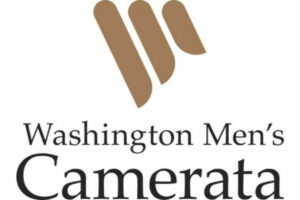This column is written by D.C. Realtor and resident Sean Forschler. Licensed in DC, MD & VA, he has been in the business since 2001 and currently works at RLAH Real Estate. He may be contacted at [email protected].
Co-operatives (co-ops) are probably the least understood type of residential home ownership. And yet, DC is one of 3 major cities where this type of ownership thrives — The other cities are New York and Chicago.
They have existed in the city since the 1920’s and unlike condominiums, co-ops never required special legislation to come into existence. DC contains about 125 co-ops (with only a few in VA & MD) and if included in a home search, many more options become available to a buyer.
A co-op is simply a corporation owned and operated by its members, in order to provide housing for its members. The corporation owns the land and improvements and thus is taxed as a whole entity.
Because of this structure, taxes tend to be significantly lower than its condominium counterpart, being one of several benefits of owning a co-op. Each unit owner pays for a portion of this monthly tax based on their ownership interest.
Ownership interest is generally based on the size of a unit. Having taxes included in the monthly fee is quite unique to co-ops as this is not the case with condo fees.
Of course, as in anything, there are a few exemptions, such as the Watergate and Riverplace. These co-operatives actually lease their land, owning only the improvements (buildings).
Owners have the exclusive right to occupy their apartment unit, participate in the operation of the cooperative corporation and have an obligation to pay their proportionate share of the co-op’s annual operating budget.
All co-op property is owned in the name of the corporation, which is directly responsible for the monthly payments of principal and interest on any corporate mortgage indebtedness, the payment on real estate taxes on the corporate property and for any other operating costs such as insurance, service contracts, salaries and the like.
Based on the ownership interest of each unit, each unit will pay a portion of this grand total. Co-op fees are generally based on the actual size of the unit; the larger the unit, the higher the fee, the smaller the unit, the lower the fee.
There are two types of co-ops. Both types are non-profit corporations and are organized as either a stock or non-stock corporation.
When purchasing a stock co-op, the buyer receives a stock certificate and a proprietary lease. These documents provide evidence of ownership of the unit.
The proprietary lease describes the relationship between the members and the corporation, allowing the unit owner the exclusive right to occupy a specific unit and to enjoy the common areas of the building. This is called a leasehold interest, whereas in a condo, ownership is designated as fee simple. Weird terms I know.
When purchasing a non-stock co-op, the buyer receives a single “ownership document.” The Broadmoor on Connecticut Avenue is an example of this type.
Unlike condos, co-ops require an application that can include financial statements and letters of reference. The co-op board must approve applicants (potential buyers) in order for the completion of sale.
Co-ops have a charter and by-laws, which are the governing documents describing the relationship between the individual cooperative owners and their ownership interest.
Lastly, and sometimes the least attractive to potential buyers is a rental policy. Most co-ops restrict rentals or simply do not allow a unit to be rented at all.
In my experience with co-ops, an owner typically has to reside in the unit for 1-2 years and then may rent out his/her unit for 1-3 years. The purpose of this is to keep the building as owner-occupied as possible. I currently own a condo in a building that is mostly tenant-occupied so I can actually appreciate this regulation.
If you plan on living in your unit for at least 4-5 years, co-ops can be an excellent option. Your money typically goes further in a co-op purchase, like getting more space. Who doesn’t want more space?
Recent Stories

Photo by Clif Burns Ed. Note: If this was you, please email [email protected] so I can put you in touch with OP. “Dear PoPville, Hey – you stopped me while…

Unlike our competitors, Well-Paid Maids doesn’t clean your home with harsh chemicals. Instead, we handpick cleaning products rated “safest” by the Environmental Working Group, the leading rating organization regarding product safety.
The reason is threefold.
First, using safe cleaning products ensures toxic chemicals won’t leak into waterways or harm wildlife if disposed of improperly.

Looking for something campy, ridiculous and totally fun!? Then pitch your tents and grab your pokers and come to DC’s ONLY Drag Brunch Bingo hosted by Tara Hoot at Whitlow’s! Tickets are only $10 and you can add bottomless drinks and tasty entrees. This month we’re featuring performances by the amazing Venus Valhalla and Mari Con Carne!
Get your tickets and come celebrate the fact that the rapture didn’t happen during the eclipse, darlings! We can’t wait to see you on Sunday, April 21 at 12:30!
Frank’s Favorites
Come celebrate and bid farewell to Frank Albinder in his final concert as Music Director of the Washington Men’s Camerata featuring a special program of his most cherished pieces for men’s chorus with works by Ron Jeffers, Peter Schickele, Amy
Cinco de Mayo Weekend @ Bryant Street Market
SAVE THE DATE for Northeast DC’s favorite Cinco de Mayo celebration at Bryant Street NE and Bryant Street Market!
Cinco de Mayo Weekend Line up:
Friday, May 3:







